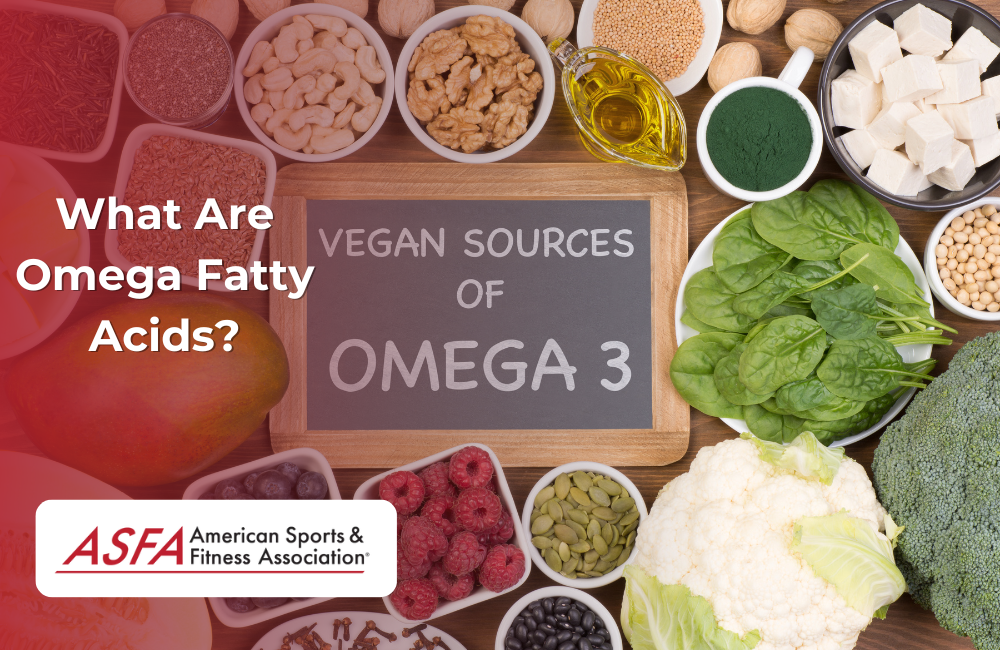
What Are Omega Fatty Acids?
Omega fatty acids are a type of polyunsaturated fat. They're found in some foods and can be made by your body from other types of fats. There are three main types of omega fatty acids: alpha-linolenic acid (ALA), eicosapentaenoic acid (EPA) and docosahexaenoic acid (DHA). ALA is the most common type of omega-3 fatty acid, EPA and DHA are both types of omega-6 fatty acids, while DPA is a type of omega-7 fatty acids.[1]
Type of Fats
Omega fatty acids are a type of polyunsaturated fat. Polyunsaturated fats are good for you, and they're found in many foods such as nuts and seeds. Other types of polyunsaturated fats include monounsaturated fats (such as olive oil) and saturated fats (like butter).
Omega fatty acids are found in seafood, poultry, eggs, dairy products, soybeans or soybean oil--and some plants like flaxseed or canola oil contain them too! It's important to know that not all omega-3 or 6 supplements have been tested for safety or effectiveness by the FDA; so talk with your doctor before taking any supplement containing these compounds unless prescribed by him/her first
There are three types of omega fatty acids: alpha-linolenic acid (ALA), eicosapentaenoic acid (EPA) and docosahexaenoic acid (DHA).
- Alpha-linolenic acid is an omega-3 fatty acid that can be found in plants like flaxseeds, walnuts and chia seeds. It's considered "the parent" of the other two types of omega 3s because it produces them when converted by your body into EPA or DHA.
- EPA and DHA are both types of long-chain polyunsaturated fatty acids that are shared by most animal species but not produced naturally by humans on their own--we have to get them through our diet or supplementation with fish oil capsules made from cod liver oil or algae oil like krill oil pills.
. Your doctor can also help you decide how much of these supplements to take for your specific health needs.
Most Common Type of Fats
Omega 3s are the most common type of omega fatty acid. They're found in fish, nuts, and seeds; however, you'll also find them in green leafy vegetables. Omega 3s aren't found in most other foods.
Omega 6 fatty acids are another type of polyunsaturated fat that we need for good health. You can get these from vegetable oils such as soybean oil or corn oil (both of which have some trans fats).
Alpha-linolenic acid, EPA and DHA are all essential fatty acids that can help with a variety of health conditions. They're also known as "good fats" because they're proven to lower cholesterol levels, reduce inflammation in the body and even improve brain function. The recommended daily intake of omega-3s is anywhere from 1,000 mg to 2,000 mg per day depending on age and gender.
Omega-3, or omega-3 PUFA (polyunsaturated fatty acids), is a type of polyunsaturated fat. Omega 3s are the most common type of omega fatty acid and they're found in foods like fish, nuts and seeds. EPA and DHA are types of omega 3s that are particularly important for brain function and heart health.
Your body can convert ALA into EPA and DHA, but not in large amounts. Some foods and nutrients help your body make EPA and DHA from ALA and other types of omega-3 fatty acids.
EPA and DHA are found in fish and other seafood, including salmon, sardines and anchovies. They're also available as supplements that you can buy at the store or online.
EPA and DHA have been shown to have many health benefits:
- They help protect your brain from aging-related decline. Research shows that people who eat more fish have a lower risk of age-related dementia (1). In one study published in the Journal of Alzheimer's Disease (2), researchers analyzed blood samples taken from people with Alzheimer's disease and those without it; they found higher levels of omega-3 fatty acids in those who did not develop this condition compared with those who did develop it over time--even after adjusting for factors like age, gender and genetics that may influence risk of developing dementia later on in life! The scientists concluded that eating more fish could lower someone's risk for developing Alzheimer's disease by almost 30 percent!
- They support heart health by lowering triglycerides while increasing HDL cholesterol levels (3). This helps reduce inflammation throughout your body too since high levels cause inflammation throughout our bodies' tissues which leads us towards many diseases such as arthritis joint pain relief treatment options available today
Omega fatty acids are important for good health, but they can be hard to come by in the diet alone. You can get omega-3 fatty acids from fish, but not everyone wants to eat fish. You can also get them from plant sources like flaxseeds and walnuts, but not everyone wants to eat plants either! If this sounds like you (or someone else who's important), there are supplements that can help you get more omega fatty acids into your body.
Omega 3s are one type of essential fatty acid - meaning that our bodies cannot make them on their own, so we must get them from food sources or supplements instead.* The other two types of essential fatty acids are Omega 6s and 9s (not including trans fats).
Conclusion
Omega fatty acids are essential for good health, but they can be hard to come by in the diet alone. Fortunately, there are some foods and nutrients that can help your body make EPA and DHA from other types of omega-3 fatty acids.




